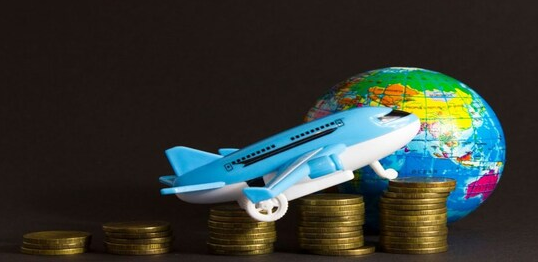Soaring Airfares during Tulip Season in Kashmir
Putting ceilings on airfares especially during peak times, providing infrastructural support, strengthen the regulatory framework and mandate airlines to follow transparent airfare policy is the need of the hour
Post by IRFAN SHAH on Thursday, March 28, 2024

With the onset of spring season in Kashmir and the opening of the famous Tulip Garden, the influx of tourists has sharply increased, bringing hopes to locals for a fruitful business. This is however, overshadowed by the soaring airfare prices. People in Delhi are diverting their holiday plans to Dubai than to Kashmir because it is relatively cheaper to go to Dubai than to come to Kashmir. This puts a serious question on the recent claims of boosting Kashmir’s tourism sector and making it world famous.
Why have the airfares skyrocketed?
There are multiple reasons for it and the first being the demand supply mismatch. Given that this is the tourist season in Kashmir, there is usually rise in the number of tourists visiting Kashmir which is not matched by the increase in supply of flights because of a number of reasons. The tourist influx is a short-term temporary seasonal increase in demand and airlines operating with an objective of profit maximization have no incentive in increasing the number of flights. Moreover, the locational disadvantage of Valley, lying in the extreme of north India with Srinagar airport being the final destination to majority of the travellers, does not encourage enrouting more flights to Srinagar. However, on the consumer side, there is no other similar alternate to reach to Kashmir. The only two commercial airports closer to Srinagar are in Jammu and Ladakh and it takes around a day from Jammu or Ladakh to reach Srinagar through road. Travelling through road is an inconvenient and time-consuming experience. This gives an added advantage to airline companies to charge higher and higher as the demand increases, leaving tourists/travellers at the mercy of airlines.
How is it a Problem?
The airline companies work in typical oligopoly market structure with a scope differentiated services. This not only results in concentration of market power within a few airline giants with strong bargaining power but also incentivises them to undergo price discrimination. Moreover, the companies have the power to indulge in tacit cartels to charge high prices to maximize their profits at the cost of domestic travellers who have no other option but to pay for it. This increases the revenue of airline companies but significantly affects the domestic tourism especially middle income class. This is not only the case with Kashmir but other tourist destinations such as Andaman, Silchar, Lakshadweep, Sikkim and Leh are also facing the brunt of expensive airfares.
Is there a way-out?
To begin with, airfare pricing is based on dynamic prices where prices of tickets vary in real-time based on a number of factors. One such factor is the demand fluctuations with airlines employing sophisticated algorithms, artificial intelligence and machine learning tools to monitor it and set prices accordingly. The government however hardly plays a role or have any control on preventing the price variation. Whatever limited control government have, that also diminished owning to the disinvestment of Indian Airlines. The government has put the peddle under the private sector and they are using it to the best of their capacity and at the cost of general public who end up paying higher and higher airfares. Even the airlines have warned of reducing flights if the airfares are regulated thus curtailing the supply of flights and resulting further increase in airfares.
However, it is right time for the government of India to intervene. Putting ceilings on airfares especially during peak times, providing infrastructural support, strengthen the regulatory framework and mandate airlines to follow transparent airfare policy is the need of the hour. Moreover, the government should also understand that the way forward is not in disinvesting PSUs and allowing private players to take control rather engage in Public-Private Partnerships to safeguard the interest of those for which it has come to power.
(Author is Assistant Professor (Economics), School of Business Management, at NMIMS Hyderabad. Feedback: shahirfan914@gmail.com)